(A map of the overlap between competing Algonquin claims across the Ontario-Quebec border. Click to enlarge.)
Jorge Barrera
APTN National News
Several individuals eligible to vote on a proposed Algonquin modern-day treaty covering Ottawa and a large swath of eastern Ontario are “non-Aboriginal” who claim to have an Algonquin ancestor “somewhere in the distant past,” according to a report provided to APTN National News.
The report examined the genealogy of 200 individuals on the Algonquins of Ontario (AOO) voters list which totals about 7,700 names. Of the analyzed group, 72 had only one Algonquin “root ancestor” stretching between four to six generations back, said the report.
“If these examples are typical of the AOO list, then it represents a triumph of genealogy over common sense…Call it the homeopathic approach to Aboriginal Title and Rights—a little drop will do you,” concluded the report, commissioned by Kebaowek First Nation, an Algonquin community in Quebec also known as Eagle Village which has a substantial territorial overlap with the AOO claim.
The AOO modern-day treaty, also known as a comprehensive claim, includes about 292,478 hectares of Kebaowek First Nation’s own claimed territory.
The report said none of the examined red-flagged individuals would “qualify for Indian status under even the most generous interpretation of the Indian Act” or meet the criteria as a beneficiary for any existing comprehensive agreements or modern-day treaties.
The report found that 66 of the 72 flagged individuals on AOO’s voter’s list had the same root ancestor—a woman from Timiskaming First Nation with mixed French and Algonquin ancestry who was born in 1853 and died in 1930. The remaining six individuals also shared the same root ancestor—a woman from Timiskaming First Nation who was born in 1822 and died in 1870.
“In review of the AOO voters list, I noticed that quite a few individuals claim descent from a single Algonquin “root ancestor.” This is problematic because it suggests that these particular individuals are essentially non-Aboriginal people with an Algonquin ancestor somewhere in the distant past,” said the report. “The same problem would arise if other names on the list were investigated.”
Kebaowek First Nation Chief Lance Haymond said the report confirms his fears.
“What is really happening here is a miscarriage of justice,” said Haymond. “These non-Aboriginal people are being allowed to vote in a process of extinguishment and it is just wrong.”
Haymond said he wants to see federal Indigenous Affairs Minister Carolyn Bennett or Justice Minister Jody Wilson-Raybould intervene.
“The federal government fights us at every opportunity when we want to expand the definition of who would qualify as status Indian and they turn around and allow almost 7,000 non-Native people…to vote on such an important issue as a land claim which is going to extinguish the rights of 10,000 Algonquins,” said Haymond. “I find it fundamentally frustrating the federal government has allowed this to go this far.”
Indigenous Affairs, which is the lead on the file, did not respond to a request for comment as of this article’s posting.
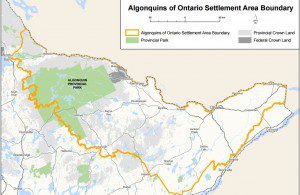
Toronto lawyer Bob Potts, the chief negotiator for the AOO claim, said the proposed modern treaty takes a more progressive view of Indigenous identity not tied to blood, but whether culture and community ties were maintained over the last 200 years.
“Why is that a problem if people have been practicing their culture over five generations?” said Potts. “The Indians that are part of this country are not all status…You don’t ignore non-status people….It is hard for some of the old hardline status-type people who feel it is an incursion of their rights.”
Potts said the AOO has a rigorous process for approving potential members for the claim and it weeded out people who could not trace a link to Algonquins from the area who began petitioning for their own communities beginning in the 1770s.
“They got run over by us over the last 200 years…They held on, they retained their culture, they retained some of their pride and we are trying to establish that again and people take exception to it,” said Potts. “There seems to be a lack of empathy with what happened to these people.”
Potts said Haymond need not worry about the AOO claim having any impact on the Kebaowek First Nation claim. He said the AOO claim has a clause that explicitly states the settlement of the modern-day treaty should not impact the rights of any other First Nation.
“The worst part about First Nations history is they end up fighting among themselves and the rest of the world moves along,” he said. “Having internecine warfare while the government sits on the sidelines and watches and waits for it to be eventually figured out…what does that do? There is less Crown land available for everybody.”
Hayden King, director for the Centre for Indigenous Governance and assistant professor of politics at Ryerson University, said the AOO claim’s standard for determining membership appeared to make it easier for the federal government to get its desired extinguishment for a large swath of territory.
“I think this is problematic and appears to be part of a trend in non-Indigenous people with a sliver of Indigenous heritage determining long-term and political outcomes for actual communities,” said King. “This actually reminds me of the old Indian Act provisions designed to facilitate land surrenders.”
The AOO claim covers about 3.6 million hectares stretching from Algonquin Park east to Hawkesbury, Ont., including Ottawa, and down into territory near Kingston, Ont. If finalized, the deal would see $300 million in capital funding and 47,550 hectares of Ontario Crown land transferred to the AOO.
There are a total of 10 communities that make up part of the AOO claim, but only one, Pikwakanagan First Nation, is a recognized band under the Indian Act.
Pikwakanagan Chief Kirby Whiteduck did not return a request for comment.
Pikwakanagan band members and those who claim to have root ancestors from the community make up 703, or 9 per cent, of the 7,714 total number of individuals on the AOO list eligible to vote on ratifying the claim.
Voting for a proposed agreement in principle on the modern-day treaty between the AOO, Ontario and the federal government begins Feb. 29 and runs until March 7.
@JorgeBarrera
-Editor’s note: Article was updated Friday, Feb. 12, 2016, to update Kebaowek First Nation spelling.




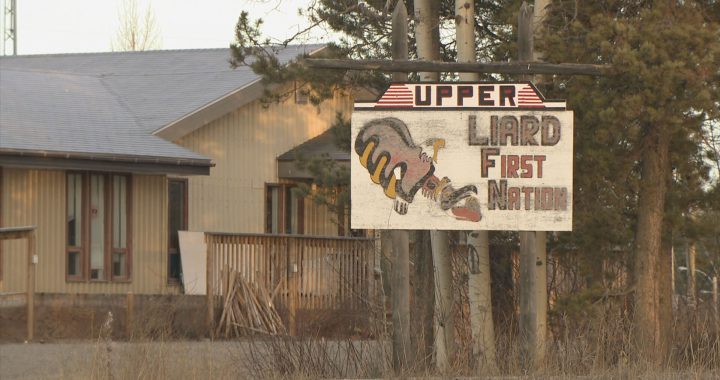

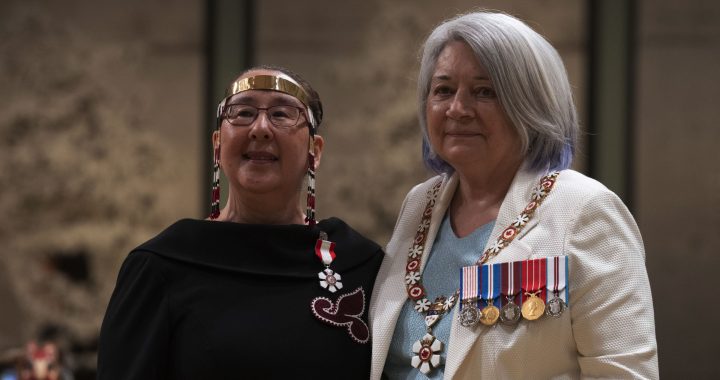
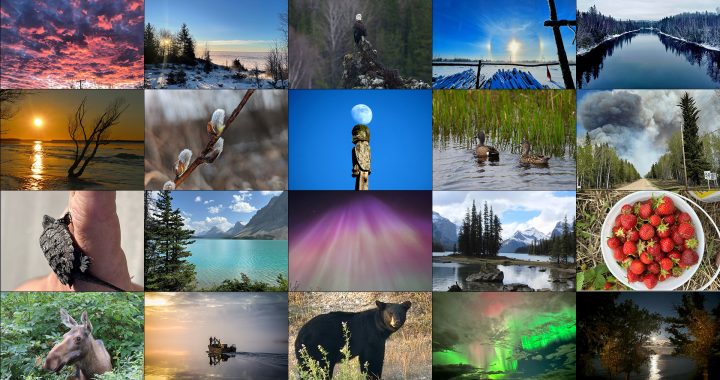
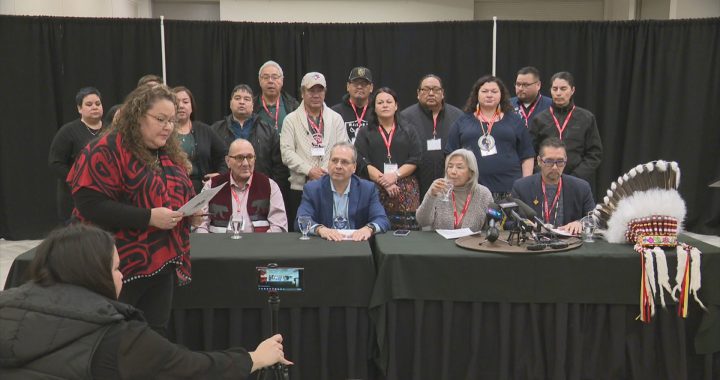
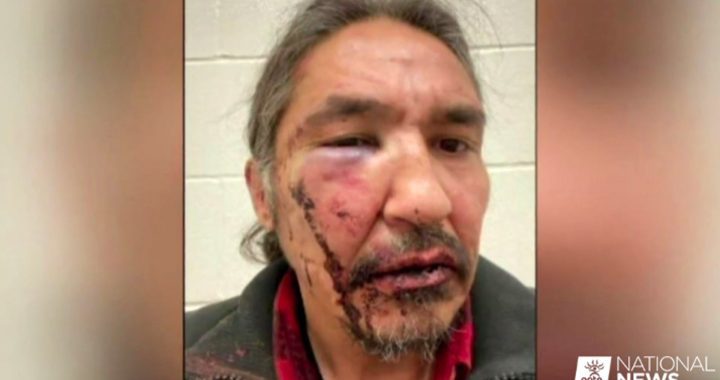

ffs there are “algonquins” who have non native chiefs so is anyone even surprised by this?
So typical This is a never ending oppression from the the Government! And it always has been the Government no matter what century, decade or party it is! No one can change where we descend from! It seems the biggest problem for the First Nation and the Government is that we ever existed in the first place! First Nation are nothing more than a continuing inconvenience, period! We are not even human in their eyes! How in this day and age does a First Nation parent explain this to their children? We teach our children that racism is wrong and all people have equal rights in this continent; oh except us! People from all parts of the world care about what happens to other people from different parts of the world, but this topic (it seems) to not be problematic enough to get involved in! This is an entire race who have done nothing but be born in the wrong place at the wrong time for the powers that be! Just adding the First Nations people to the endangered species list would seem be asking too much! There is no longer enough is enough for this race! It’s being proven day by day. The hour is on its last moments! I’m ashamed for the the recklessness of the human race and there is no lighter way to say that! Faith For ‘All Our Relations’
I also suggest Jorge Barrera read this: http://www.lynngehl.com/black-face-blogging/long-live-the-algonquin-frauds
Criticisms to the Algonquin land claims process, like all land claims processes, should stay away from arguments of status and blood to discredit people, and remain with the fact that these processes are shaped by colonial policy that seeks to extinguish and terminate Indigenous jurisdiction.
hello lynn do you think someone who has shown no interest in first nation challenges or culture in their entire life should be able to call themselves Algonquin just because their gt gt gt grandmother was Algonquin and I don’t buy the theory that their choices were taken by the non native population some people on that list are there for greed pure and simple this must be sorted out first
I am sure people are there for reasons that are not in the best interest of Algonquin jurisdiction. My concern is the article refers to all non-status people as non-aboriginal. This line of argument has many issues and also confounds what the real concern is: colonial policy that is only about the elimination of our jurisdiction. Keep in mind it is not just the non-status who may be greedy many status Algonquin are of the same mindset. This is such a terrible situation.
non algonquins shouldnt be voting on things that concern the algonquin people, this “one drop” quantum is a white man invention